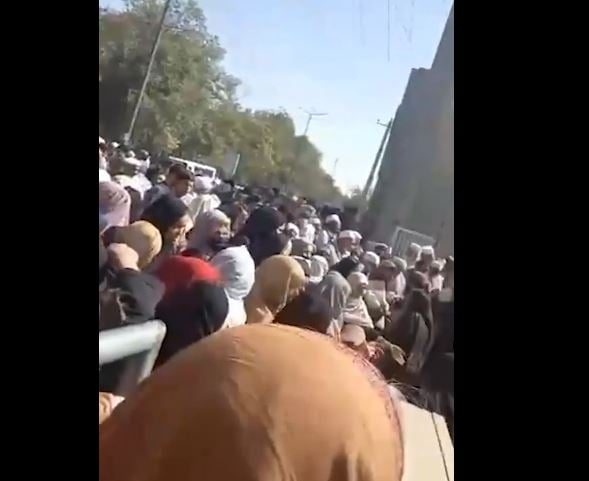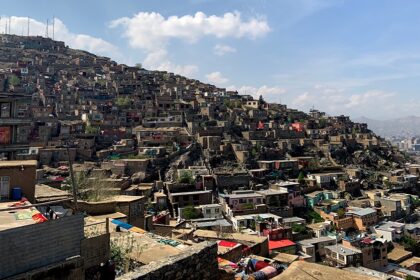RASC News Agency: In Kabul, the capital of Afghanistan, the despair of the country’s forgotten workforce broke into public view on Tuesday, September 16, as dozens of retired civil servants among them elderly women who had spent their lives in public service marched in front of the Taliban-controlled Pension Fund Directorate. Their demand was urgent and unequivocal: the immediate payment of pensions withheld for more than four years.
Many of the demonstrators, weak and elderly, spoke with a mixture of exhaustion and defiance. “We gave our lives to the state, but for four years we have lived without income. The Taliban have not only refused to pay us but will not even give us a clear answer,” one retired woman told RASC News. Her words reflected the betrayal felt by thousands who, after decades of service, now face hunger and humiliation in what should have been years of dignity.
Behind this silent suffering lies a deliberate policy. Reliable sources confirm that the Taliban froze pension disbursements across the country, diverting significant sums instead to the families of suicide bombers responsible for past attacks. Civil society activists describe this as a grotesque inversion of justice: rewarding death and destruction while condemning lawful servants of the nation to destitution.
The regime’s Ministry of Finance had promised earlier this month to establish a timetable for resuming pension payments to retirees from nine government departments. Yet most report receiving nothing, and Taliban leader Hibatullah Akhundzada has gone even further formally dismantling Afghanistan’s pension system and halting the deduction of pension contributions from working employees’ salaries. By decree, he has erased decades of obligations, leaving tens of thousands of elderly citizens without the benefits they earned.
The frustration in Kabul was mirrored the same day in Mazar-i-Sharif, where hundreds of residents took to the streets to protest the Taliban’s demolition of shops in the Rasta-e-Lilami market. Marchers carried slogans such as “Death to Traitors” and accused the regime of tearing bread from the tables of countless families. Shopkeepers said the Taliban razed their stores without notice, without legal justification, and without compensation. For many, these shops were their sole means of survival. “They want to seize our property by force. This is not governance, it is daylight robbery,” one merchant said.
Such episodes are not isolated. Reports from across Afghanistan indicate that Taliban officials and their affiliates have been systematically seizing land and property since their return to power. Civil society groups estimate that hundreds of families have been forcibly displaced, with confiscated land redistributed to Taliban loyalists a practice that has left deep scars of resentment and despair.
Taken together, these parallel protests expose a widening fault line between the Taliban and the people they claim to rule. Pensioners are denied their lawful rights, merchants see their livelihoods bulldozed, and families across the country are stripped of their property. What emerges is a portrait of a regime that sustains itself not through governance but through plunder, repression, and betrayal.
Observers warn that such discontent cannot be indefinitely contained. The spectacle of elderly women demanding justice in Kabul and shopkeepers denouncing betrayal in Mazar underscores a profound truth: beneath the Taliban’s rhetoric of order and control lies a fragile state, sustained by fear but eroded by its own corruption. The longer pensions remain unpaid, properties seized, and livelihoods destroyed, the more likely it becomes that Afghanistan’s citizens once silenced will rise with louder voices against the injustices imposed upon them.






